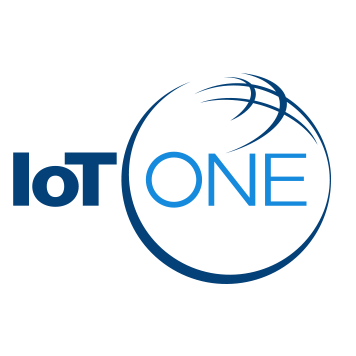Zapata

Overview
|
HQ Location
United States
|
Year Founded
2017
|
Company Type
Public
|
Revenue
< $10m
|
|
Employees
51 - 200
|
Website
|
Stock Ticker
NASDAQ: ZPTA
|
Twitter Handle
|
Company Description
Zapata Computing is a quantum software company that offers computing solutions for industrial and commercial use. Its computational approaches leverage the statistical advantages of math based on quantum physics. Its primary target customers are enterprise organizations.
IoT Snapshot
Zapata is a provider of Industrial IoT analytics and modeling, networks and connectivity, platform as a service (paas), sensors, functional applications, and infrastructure as a service (iaas) technologies, and also active in the automotive, chemicals, construction and infrastructure, consumer goods, electrical grids, finance and insurance, life sciences, national security and defense, and transportation industries.
Technologies
Use Cases
Functional Areas
Industries
Services
Technology Stack
Zapata’s Technology Stack maps Zapata’s participation in the analytics and modeling, networks and connectivity, platform as a service (paas), sensors, functional applications, and infrastructure as a service (iaas) IoT Technology stack.
-
Devices Layer
-
Edge Layer
-
Cloud Layer
-
Application Layer
-
Supporting Technologies
Technological Capability:
None
Minor
Moderate
Strong

Supplier missing?
Start adding your own!
Register with your work email and create a new supplier profile for your business.
Case Studies.
Case Study
Optimizing Automotive Manufacturing with Industrial Generative AI
Global manufacturers like BMW face a complex optimization problem: scheduling their workers to achieve production targets while minimizing idle hours. The challenge lies in the wide range of possible configurations and numerous constraints. Different shops have varying production rates, and each has their own discrete set of shift schedules. Furthermore, manufacturers need to prevent overflows and shortages in the buffers between steps in the manufacturing process. The complexity of the problem is further compounded by the need to optimize across multiple variables and constraints, making it a difficult task to solve using traditional methods.
Case Study
Optimizing Materials Discovery with Quantum and Classical Machine Learning Techniques
BASF, the world's largest chemical producer, is constantly innovating and developing new materials for various sectors including consumer goods, transportation, healthcare, agriculture, and energy. The challenge lies in their pursuit of sustainable and innovative new materials. BASF is keen on exploring how AI and quantum techniques can be utilized on today's classical computers to enhance existing cheminformatics solutions. Specifically, they are interested in machine learning models that can predict the molecular properties of new materials. The goal is to leverage these advanced technologies to boost their materials discovery process and make it more efficient and effective.
Case Study
Quantum Chemistry Revolution: bp and Zapata's Quantum Computing Collaboration
bp, one of the world's largest energy companies, is constantly seeking innovative ways to leverage emerging technologies. One such technology is quantum computing, which has the potential to disrupt industries that rely heavily on chemistry. Quantum computing theoretically has the ability to simulate molecules and predict their properties beyond the capabilities of classical computers. It also has implications for various business operations such as logistics, manufacturing, finance, security, and more. However, the extent and timeline of this disruption remain uncertain. To better prepare for the quantum future and gain a competitive edge, bp is exploring the impact of quantum computing on chemistry calculations within and beyond their core business.
Case Study
Accelerating Monte Carlo Simulations with Quantum Computing: A BBVA and Zapata Case Study
BBVA, a Spain-based financial institution with over €662 billion in assets and 83 million customers across more than 30 countries, relies on complex calculations for risk analysis and pricing of financial products. Post the 2008 Financial Crisis, regulations necessitated banks to evaluate credit risk and stress-test financial scenarios. Typically, this risk analysis is performed using Monte Carlo simulations, a highly complex, expensive, and time-consuming process that must account for all possible credit default scenarios. Any enhancement in the performance of these simulations would directly affect the daily operational costs, financial product pricing, and risk analysis.
Case Study
Optimizing Supply Chain Operations with Orquestra® for a Global Beverage Distributor
The case study revolves around an international beverage distributor that delivers soft drinks to over 700,000 vending machines in one of its territories. The company was facing challenges in optimizing its logistics network, which if improved, could lead to increased revenue, decreased fuel costs, and a reduced carbon footprint. The organization was also struggling with its data architecture, which was not supporting fast and efficient daily routing computations. The need for a solution that could enhance their delivery operations and support faster, more efficient daily routing computation was evident.
Case Study
Industrial Generative AI for Next-Generation Race Analytics: A Case Study on Andretti Autosport
Andretti Autosport, a renowned racing team, was grappling with the challenge of effectively analyzing the massive amount of data generated during races, approximately 1 terabyte per car. The team was in search of innovative ways to leverage this data to gain a competitive edge and win more races. The primary objective was to upgrade their existing data analytics infrastructure by incorporating proprietary Zapata Generative AI techniques to drive their race strategy. The challenge was not only to manage and analyze the vast amount of data but also to make real-time strategic decisions based on the insights derived from the data.
Case Study
Benchmarking Quantum Computing Applications with Zapata's Orquestra for the US Department of Defense
The US Department of Defense, specifically the Defense Advanced Research Projects Agency (DARPA), is keen on understanding the future utility of quantum computers. Quantum computers promise an exponential advantage over classical computers, but quantifying this advantage for solving computationally hard problems remains unclear. The challenge also lies in determining when exactly this advantage could be realized. To address this, DARPA is funding Zapata to develop application-specific benchmark tests to compare the performance of different quantum hardware backends. Additionally, DARPA is interested in estimating the hardware resources that will be required for different quantum applications.







